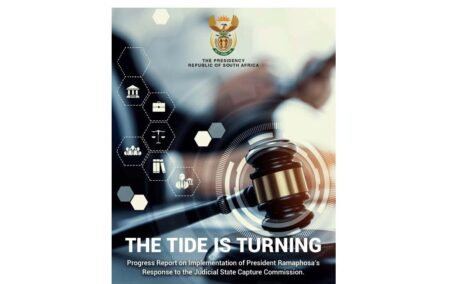The ANC’s inability to deal with corrupt elements within its ranks could be due to its leadership structures being held “hostage” by them, City Press has reported.
This admission was contained in a document that was circulated at the party’s national executive committee (NEC) meeting in Boksburg this weekend.
The document lamented the state of the party, and painted a picture of an organisation at war with itself.
It highlighted the party’s failure to deal with people implicated in the Zondo Commission Report, and recommended that the party implement its NEC resolution on state capture to act on the Commission’s findings.
“The state investigative units and prosecutorial authorities appear to be weakened and affected by factional battles and unable to perform their functions effectively.”
The party’s leadership structures seemed helpless to deal with corrupt, high-ranking officials “either because they lack the means or the will, or are themselves held hostage by them”.
The document acknowledges that corruption robs “our people of billions that could be used for their benefit”. The ANC does things contrary to ANC or government policy, or “that are not legal or constitutional, and wait for court to correct our acts”.
Some NEC members told City Press that these actions had contributed to the party’s failure to win a majority in the elections.
The NEC also noted that the ANC’s perceived lack of integrity had seriously damaged its image, its ability to occupy the moral high ground, its position as a leader of society, and the people’s trust in it.
The document recommended that party officials publicly disassociate themselves from anyone accused of corruption.
ANC members and structures should cooperate with law enforcement agencies to criminally prosecute anyone “guilty of corruption”.
It recommended that party deployees, especially in finance, police or the judiciary, should strengthen the state’s capacity to successfully investigate and prosecute those implicated in corruption, and account for any failure to do so.
The party said that cooperation between investigators, forensic experts and prosecutors was uneven. Some corruption cases were being lost due to poorly-constructed dockets and cases inadequately presented in court.


